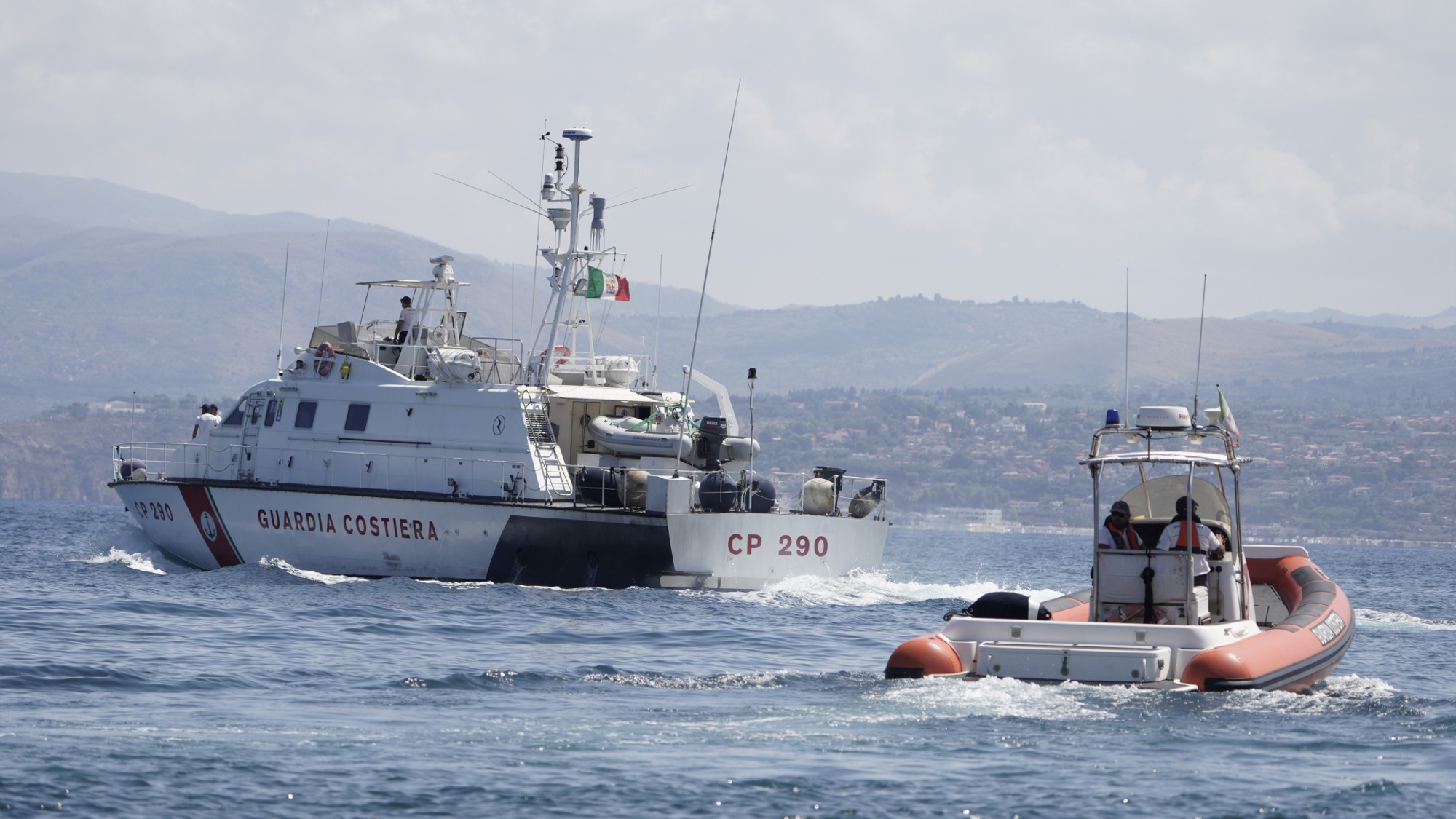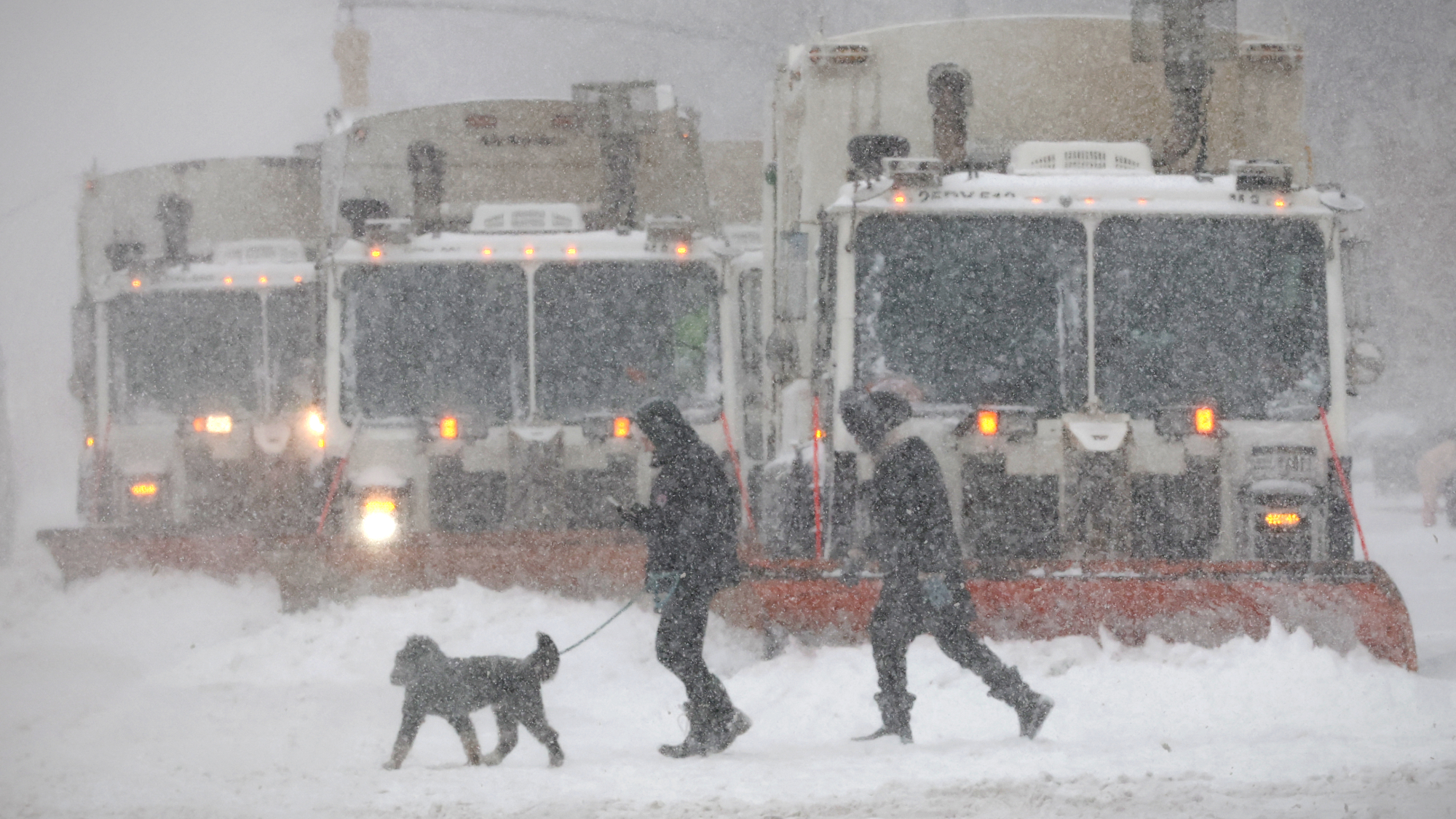Is dangerous weather in the Mediterranean Sea the new normal?
A waterspout, or sea tornado, recently sank a superyacht off the coast of Sicily


A free daily email with the biggest news stories of the day – and the best features from TheWeek.com
You are now subscribed
Your newsletter sign-up was successful
The superyacht Bayesian sank off the coast of Sicily on Aug. 19, killing at least six people aboard. The vessel was moored in the waters of the Mediterranean Sea when a sudden, violent storm created a waterspout, or sea tornado, that quickly caused the ship to founder. Experts were mystified as to how the typically calm waters of the Mediterranean Sea could create conditions for such a rapid storm.
The answer may lie in climate change, as many scientists have begun pointing to the increasing temperature of the Mediterranean Sea as a possible culprit for the unusual storm patterns. This warming of the water, scientists say, is likely a significant contributor to these types of weather events — and some are now worried that storms like the one that sank the Bayesian could be here to stay.
What did the commentators say?
The Mediterranean is "prized for its crystal clear, tranquil waters," but "these waters can still be dangerous," and it's "only becoming more so as human-caused climate change warms the sea, whipping up stronger and more intense storms," said Laura Paddison for CNN. It is clear that "climate change is leading to more intense storms, some of which are fueled by warm ocean water." While "ocean heat is affected by natural climate fluctuations," scientists believe it is "being supercharged by human-caused global warming driven by burning fossil fuels."
The Week
Escape your echo chamber. Get the facts behind the news, plus analysis from multiple perspectives.

Sign up for The Week's Free Newsletters
From our morning news briefing to a weekly Good News Newsletter, get the best of The Week delivered directly to your inbox.
From our morning news briefing to a weekly Good News Newsletter, get the best of The Week delivered directly to your inbox.
The Mediterranean Sea continues to warm. The "water temperatures around Sicily are approximately 30 degrees" Celsius, or 86 degrees Fahrenheit, Luca Mercalli, the president of the Italian Meteorological Society, said to CNN. These are among the hottest ambient water temperatures on the planet, which scientists say could be contributing to events like storms and waterspouts. The International Panel on Climate Change "has not found a definite link — there hasn't been much research into how climate change may be affecting waterspouts — but experts say that the conditions for waterspouts to form are happening more often," Alec Luhn said for Wired.
Water temperatures "are now at unprecedented levels," and a "2022 study of 234 waterspouts in the Spanish Mediterranean over the past three decades found that they were more likely to break out when the sea surface was warmer, especially above 23 degrees Celsius (73 degrees Fahrenheit)," said Luhn. In the case of the Bayesian, the storm that caused the yacht to sink was "very violent, very intense, a lot of water and I think a turning system like a tornado," Karsten Borner, the captain of a boat that was moored next to the Bayesian, said to Reuters. The water is "way too hot for the Mediterranean and this causes for sure heavy storms, like we had one week ago on the Balearics, like we had two years ago in Corsica and so on," he said.
What next?
Since there hasn't been that much conclusive research on waterspouts and climate change, it remains unclear how much of a role the warm water plays, and whether or not it will lead to a significant spike in storms. Experts remain "wary of confirming a definite link with climate change," said National Geographic. This is because waterspouts "are a very short-lived and local scale phenomena, and therefore difficult to attribute to impacts of climate change," a spokesperson for the Australian Government Bureau of Meteorology (BOM) said to National Geographic.
While climate change does "make sea surface temperatures warmer, it's unclear how it will affect the other conditions needed to create waterspouts," said National Geographic. Waterspouts "need a temperature difference between air and sea. If the air is warming at the same rate as the bodies of water, an increase in waterspouts is unlikely," David Sills, the executive director of the Northern Tornadoes Project, said to the outlet.
A free daily email with the biggest news stories of the day – and the best features from TheWeek.com
Other scientists, though, are continuing to throw up caution signs about future bad weather in the Mediterranean. Conclusively linking waterspouts and climate change is a "step too far at the moment," Peter Inness, a meteorologist at the University of Reading, said to CNN, but "global warming — and specifically warming of the Mediterranean Sea — is quite likely to lead to an intensification of a number of potentially dangerous weather systems in that region."
Justin Klawans has worked as a staff writer at The Week since 2022. He began his career covering local news before joining Newsweek as a breaking news reporter, where he wrote about politics, national and global affairs, business, crime, sports, film, television and other news. Justin has also freelanced for outlets including Collider and United Press International.
-
 Political cartoons for February 17
Political cartoons for February 17Cartoons Tuesday’s political cartoons include a refreshing spritz of Pam, winter events, and more
-
 Alexei Navalny and Russia’s history of poisonings
Alexei Navalny and Russia’s history of poisoningsThe Explainer ‘Precise’ and ‘deniable’, the Kremlin’s use of poison to silence critics has become a ’geopolitical signature flourish’
-
 Are Hollywood ‘showmances’ losing their shine?
Are Hollywood ‘showmances’ losing their shine?In The Spotlight Teasing real-life romance between movie leads is an old Tinseltown publicity trick but modern audiences may have had enough
-
 How roadkill is a surprising boon to scientific research
How roadkill is a surprising boon to scientific researchUnder the radar We can learn from animals without trapping and capturing them
-
 NASA’s lunar rocket is surrounded by safety concerns
NASA’s lunar rocket is surrounded by safety concernsThe Explainer The agency hopes to launch a new mission to the moon in the coming months
-
 The world’s oldest rock art paints a picture of human migration
The world’s oldest rock art paints a picture of human migrationUnder the Radar The art is believed to be over 67,000 years old
-
 Moon dust has earthly elements thanks to a magnetic bridge
Moon dust has earthly elements thanks to a magnetic bridgeUnder the radar The substances could help supply a lunar base
-
 Winter storm lashes much of US South, East Coast
Winter storm lashes much of US South, East CoastSpeed Read The storm spread across 2,000 miles of the country
-
 The ocean is getting more acidic — and harming sharks’ teeth
The ocean is getting more acidic — and harming sharks’ teethUnder the Radar ‘There is a corrosion effect on sharks’ teeth,’ the study’s author said
-
 Cows can use tools, scientists report
Cows can use tools, scientists reportSpeed Read The discovery builds on Jane Goodall’s research from the 1960s
-
 The Iberian Peninsula is rotating clockwise
The Iberian Peninsula is rotating clockwiseUnder the radar We won’t feel it in our lifetime
